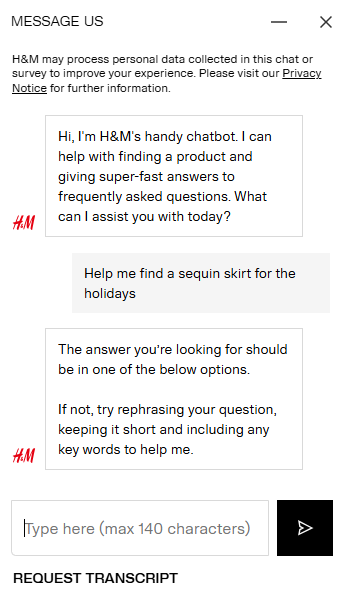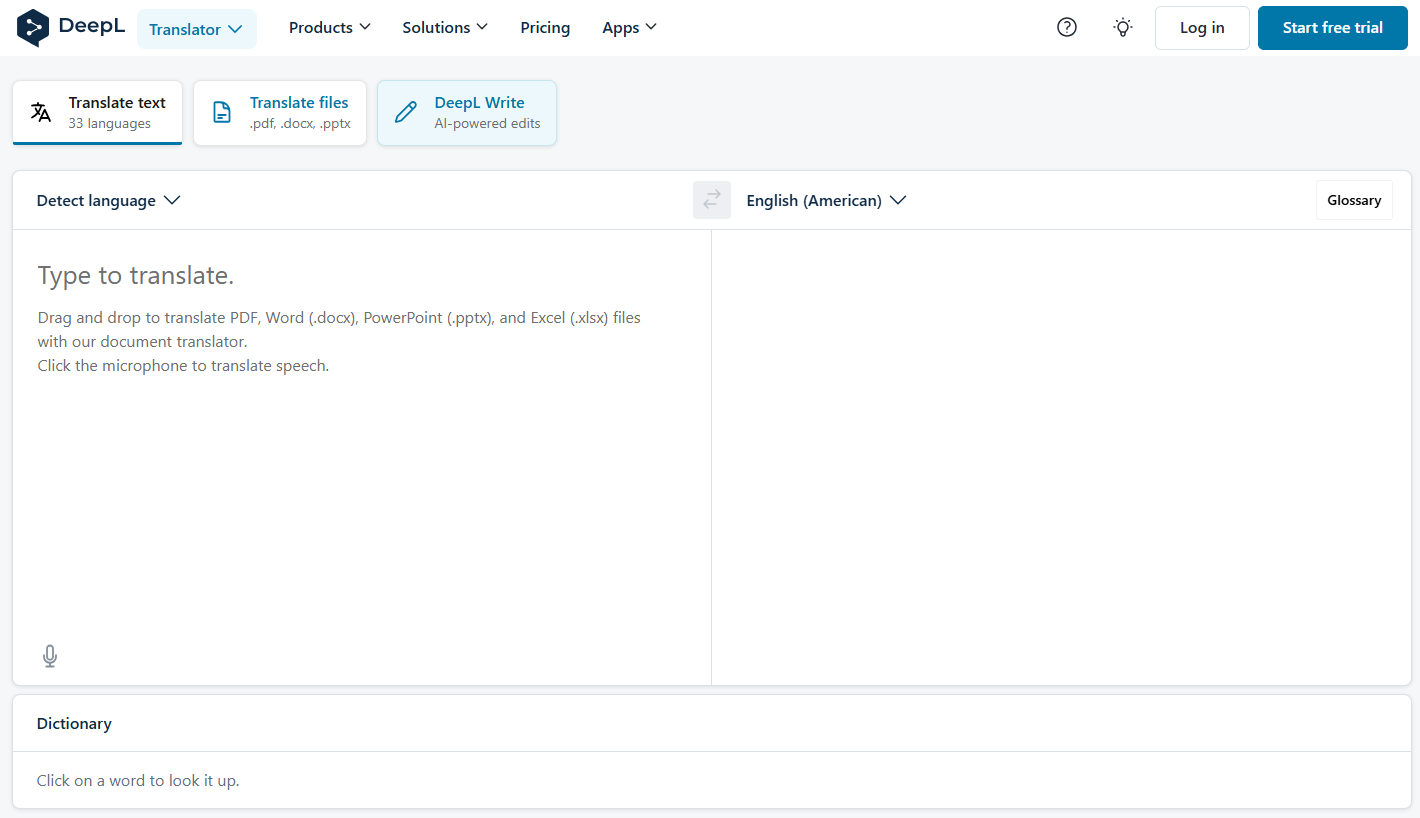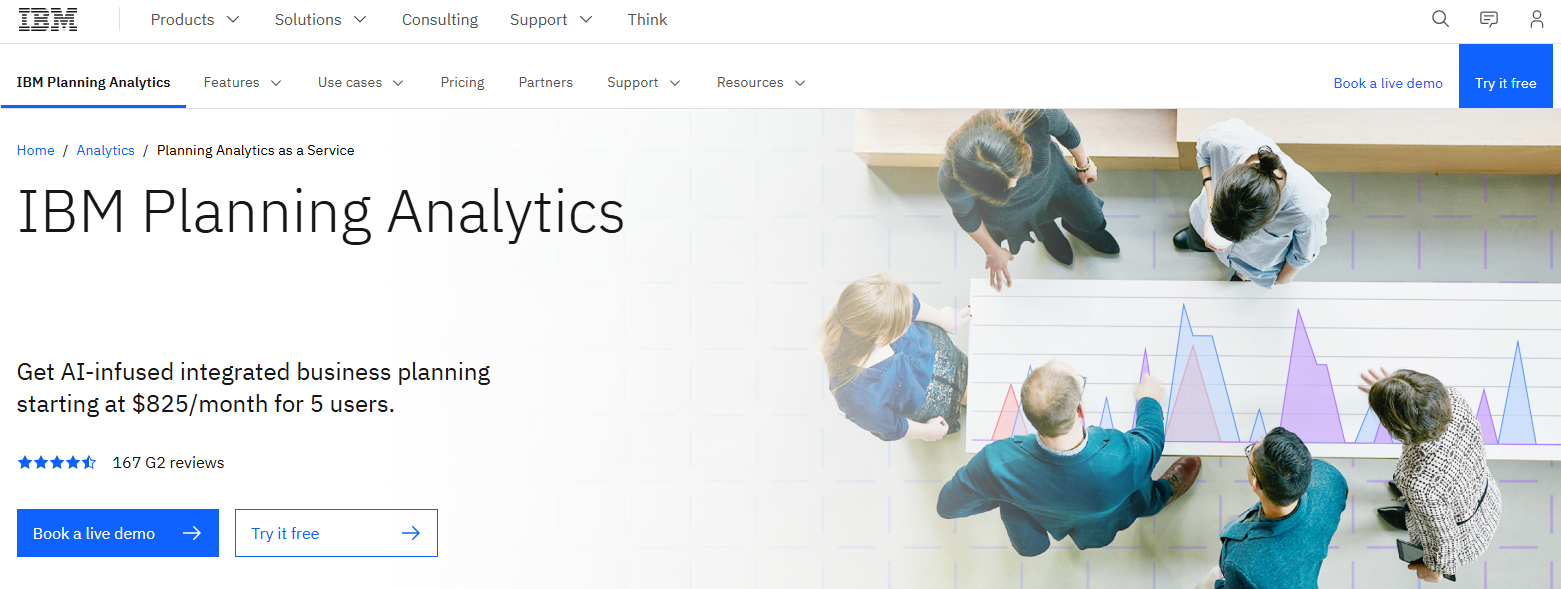Artificial intelligence and e-commerce
AI is starting to interfere in all our life aspects, from more and more automatic checkouts to advanced security controls in airports...
Especially since the public release of ChatGPT by the end of 2022, artificial intelligence is everywhere.

What is AI?
Now widely used in our daily lives, we can define artificial intelligence by the capacity of a device to perform human tasks.
Operations that used to require our grey matter can now be carried out by computers. And usually much more quickly, and with a much smaller margin of error.
How to use artificial intelligence in e-commerce?
AI is able to analyze data, make decisions and take appropriate action.
However, these capacities are very useful for e-commerce.
It's possible to exploit AI rapidity, simplicity, and fluidity to optimize the functioning of a virtual store.
Many e-commerce companies already use AI software to better understand their customers, attract new potential customers and offer a better user experience.
But how do they proceed? 🤔
How to benefit from artificial intelligence to sell online?
Artificial intelligence can boost your e-commerce in different ways... 🎰
Optimization of pricing
When you run an online business, setting the prices of your products can be a difficult task, especially if you are a new company in the sector.
Fortunately, AI can help you.
Algorithms analyze different factors, especially your competitors' pricing, your stock levels and the current demand, in order to set your prices dynamically:
- This means that your prices are adapted, in real time, depending on the market. If the demand is low and stocks are high, prices must be lower. Of the opposite is true, they increase like your benefits.
- Moreover, AI can also help you optimize your prices, depending on your order history.
▶️ Thus, you will be able to generate more sales, without losing customers because of pricing errors.

Recommendations of custom products
In 2023, it is very important to offer a custom shopping experience. 71% of consumers are frustrated when this is not the case.
In this situation, AI use seems contradictory: making the shopping experience more personal by entrusting the job to a robot? And yet it does.
Algorithms can analyze large quantities of data, especially users' behaviour on your website, their purchase history and their preferred products, in order to understand what they are interested in.
Then, this information is used to recommend them articles that suit them.
The emphasis is on hyperpersonalization, which can be implemented from a wealth of data, collected by examining consumer behaviour on the Web.
For example, Netflix recommends TV shows and films based on user interaction.

Even better! AI can rely on Natural Language Processing (NLP). Thanks to it, algorithms can interpret reactions, opinions and the comments of your website customers, in order to better understand their interests.
Impressive, isn't it? 🤯
Customer service and virtual assistants
When your customers have a question, they want responses (quickly!).
52% of users prefer companies that provide live chat support.
And it's even better if this support is available 24/7!
Obviously, it isn't always possible to pay someone to ensure around-the-clock, especially if you run a small company.
For this, there are virtual assistants or AI chatbots. They need no sleep or breaks; they work night and day, without stopping.

A chatbot can interpret customer demands, understand their problem and give a response - whether that's directing them to a guide, asking for further information or offering an immediate solution.
This trend is called conversational commerce.
Smarter logistics
Artificial intelligence can also improve your logistics; that is to say the way you order, manage, and send your stock to your customers.
AI can especially help you:
-
Optimize shipping routes: by taking factors into consideration such as distance, weather conditions, traffic, and available transport methods, they can help you reduce costs and delivery time.
-
Plan more effectively: by analyzing market trends and data related to sales, AI can predict the future demand, enabling you to place better orders, reduce stock-outs, and improve the efficiency of your supply chain.
-
Better manage your space: by mastering your warehouse data, AI can streamline operations. You will reduce costs, boost order execution, minimise "dead" storage space and increase your benefits!
Obtaining customers is not only a marketing question. It's also remarketing one; that is to say selling more and more to the same customers.
This means using many strategies to encourage people who have already interacted with your brand (but not necessarily bought) and entice them to come back to your company ecosystem.
You've guessed it, AI can help you (again), especially thanks to:
AI analyzes data to predict which one of your customers is most likely to buy, and especially, when. This makes lead generation easier.
AI marketing tools can help you identify customers who left their cart during the last session on your website. This enables you to engage them again with an ad, email, special offer or discount, reducing potentially your churn rate.
According to Conversica, at least 33% of marketing leads (= potential customers) aren't chased up by the sales team. This means that potential buyers interested in your product or service inevitably slip through the net.
Moreover, many businesses have too much customer data that they make little or no use of. It's an incredible mine of information that could help improve the sales cycle.
AI-driven ads for your online business
AI can also help you create your ads, especially which customization and segmentation.
You may not have time to create a custom ad campaign for each of your customers, but AI can do it for you.
It is able to analyze the latest exchanges, then create a custom marketing text that is much more engaging than ordinary messages and more likely to encourage customers to take action.
A safer way to sell online
AI can identify fraudulent transactions, and prevent them from occurring by saving your customers' data, and protecting you from reputation and financial risks related to chargebacks (payment cancellations) and disputes.
A more efficient marketing strategy
AI can optimize your marketing campaigns, by determining the most effective channels, the right time and the best message to capture customers' attention.
.jpg)
Time-saving
With AI taking care of all the tasks you don't have time for, you'll be able to concentrate on what's really important... growing your business!
Help for your Google ranking
If you use AI tools for your keyword research to optimize your website content, you can boost your e-shop SEO and get the top results on results pages.
Write product pages
Product descriptions are one of the most difficult tasks of a virtual shop.
When you sell many similar products or the same products on many different platforms, this may take a lot of time, especially if you consider that each description must be unique for SEO reasons.
To do this, the product pages generated by AI will help you. According to our experience, this is at least five times faster than using a human editor.
Watch out
AI-generated descriptions always tend to be a little impersonal. That's why we recommend to use them as a starting point you can then develop as you wish over time.
AI-generated translations
You can now use automatic translations in a professional context.
AI translators are more and more efficient and enable you to provide foreign customers with your information.

That being said, this technology isn't completely perfect, so try to check translations if you can.
Create a more effective sales process
Fortunately, we don't use old sales methods such as cold calling anymore.
Nowadays, customers' life is influenced by a series of different media, from TV ads to social media.
If you want to create an impactful business message that reaches consumers at the right moment on the right platform, AI is the way forward.
For example, IBM software scans thousands of products to find perfect matches based on the information basis given by the customer in real time and their searches (for example, weather conditions in their city).

AI and e-commerce: our 5 top tips
Now you know the AI possibilities and why you need them, let's discover our top 5 tips on how to introduce it into your online sales strategies.
Define your AI objectives
Start by determining your business fields that will benefit from AI. Operations? Marketing? Customer service?
This will help you define your priorities and know how to start on your AI path.
Choose the right AI software
Once you have identified your objectives and problems, search for and choose the AI tool that suits you best.
Start modesly and progress
It's not a good idea to rush headlong into widespread AI deployment.
You must start on a small scale, by testing or adapting your solution, before spreading it progressively.
In this way, you will rapidly detect the potential problems...before your customers!
As a "beginner", your AI software must work with other apps such as your web marketing tools and your stock management software.
Optimize constantly
As we've already mentioned, AI is a constantly evolving process. You need to continually feed it data to get the most out of it, and constantly monitor it to make sure it's working optimally.
A few ideas for the future of artificial intelligence for the online sale
Yes, these new AI uses have fantastic potential, and are likely to become increasingly commonplace in the years ahead, but we're still in the early ages. And caution is called for.
With great power comes great responsibility; that is to say an even greater risk of ruining everything if you're not careful.
That being said, the history tends to favour early adopters. So if you start to use AI effectively right now, you will probably dominate your market! 🏆
Unify customization and data protection
Each time we talk about customization, there's often a trade-off when it comes to user privacy. The subject of privacy is hotter than ever.
Brands actively try to respect transparency, security and honesty as core values. However, they can't afford to abandon customization, given the essential role it plays in their success.
So, how to solve this problem? Many companies think that the solution is artificial intelligence.
Users give their contact details more easily if they have something really interesting in return.
For example, Alexa from Amazon helps you in your daily routine.
Generate sales thanks to connected objects
Everybody is aware of the important part played by phones in online sales.
According to Shopify, in 2016, mobile browsing exceeded other channels and became the major source of e-commerce traffic.
The arrival on the market of products such as Apple Watch, FitBit and other connected objects has many implications for online shoppers.

Wearable technologies are able to collect new forms of information. By adding physical data such as vital statistics or pupil dilation rate, recommendations will be incredibly customized.
Takling fake reviews
Each expert online shopper knows the problem of fake reviews.
Each day, consumers are inundated with many ads that can overwhelm them, often delaying their decision-making. This is where word-of-mouth comes into its own.
If a customer has a friend who bought your product and liked it, they will be convinced too.
According to a recent study by Dimensional Research, 90% of people assert that online reviews influence their purchasing decisions.
But what happens if these reviews are fake? AI can be used to deal with this problem.
The creation of fake reviews is known as astroturfing, and is widespread on many websites and services.
Some sellers use artificial intelligence to emphasize verified and useful reviews.
Enhance user experience
The customization of results through localization makes it possible to eliminate a large part of excessive information often presented to consumers.
Thus, they can make decisions more quickly and confidently.
AI for your online store: what conclusion can we draw?
Artificial intelligence is still a subject that divides opinion. Some fear it, others swear by it.
But for virtual store managers, AI should be a source of excitement. The possibilities are already exciting, and they're evolving all the time.
AI enables online sellers to analyze millions of daily interactions, in order to perfectly target their offers.
Sales teams now have brand new information. They can customize the sales cycle thanks to AI-powered applications that help engage the right potential customers with the right message at the right time.
The future of e-commerce is here, in two letters. 🤖




.jpg)



